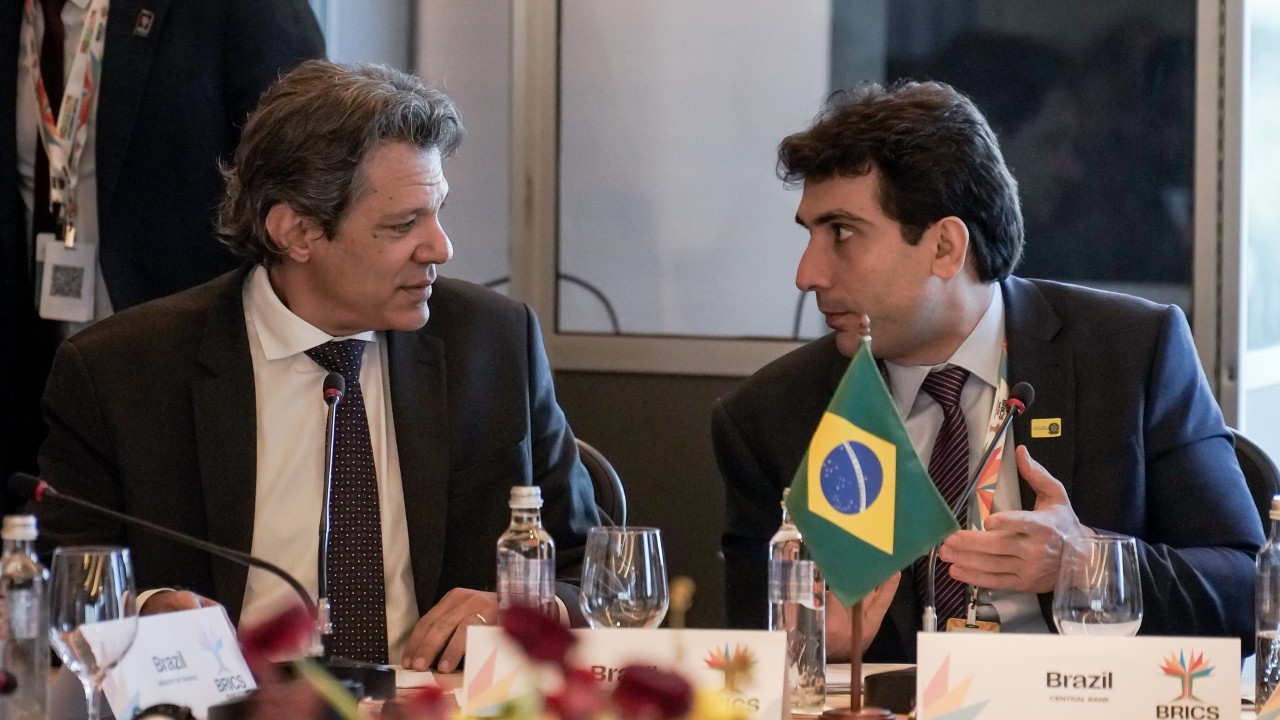“There is no individual solution to challenges of contemporary world,” says Haddad at BRICS Finance Meeting
The Minister of Finance advocates for multilateralism and presents the strategic pillars of Brazil’s presidency of BRICS. The meeting marks the final stage ahead of the Summit

By Maiva D’Auria | BRICS Brasil
“There is no individual solution to the challenges of the contemporary world. No country, acting in isolation—regardless of its power—can provide an effective response to global warming or meet the legitimate aspirations of the majority of humanity for a dignified life,” said Minister of Finance Fernando Haddad at the opening of the Meeting of BRICS Finance Ministers and Central Bank Governors, held this Saturday, July 5, in Rio de Janeiro. The session marked the final preparatory stage before the BRICS Summit, which begins on Sunday, 6 July.
The meeting addressed the promotion of multilateralism, global economic outlooks, and the role of BRICS. Haddad underscored the need to foster “21st-century multilateralism,” described as a “sustainable reglobalization” based on the social, economic, and environmental development of humanity as a whole.
“This is precisely the role of BRICS. BRICS is the face of the future,” Haddad stated. To help build that future, he explained that Brasil’s presidency of the group is organized around three interlinked pillars: economic, climate, and social.
On the economic front, the focus is on facilitating trade and investment among BRICS countries while strengthening coordination on reforming the international monetary and financial system. Haddad highlighted progress on intra-BRICS dialogue around public–private partnerships, taxation, and customs—with particular emphasis on taxing ultra-high-net-worth individuals.
On the climate front, he pointed to efforts to develop innovative instruments to accelerate ecological transformation across BRICS countries, especially through the Tropical Forests Forever Fund (TFFF), a mechanism focused on preserving tropical forests.
On the social front, BRICS countries are working to mobilize both public and private resources to ensure food security, provide social protection, and expand economic opportunities.

Three Key Deliverables from Brasil’s BRICS Presidency
Haddad also outlined three major outcomes from Brasil’s 2025 BRICS presidency. The first was the participation of new member countries, which has strengthened the group. “We are talking about some of the most influential diplomatic actors of our time—economies among the most dynamic in the world and demographic and climate powers central to sustainable global development,” the minister emphasized.
The second outcome was progress in the negotiation of joint declarations, consolidating BRICS’ commitment to multilateralism. Among the highlights, Haddad mentioned the bloc’s support for a proposed UN Framework Convention on International Tax Cooperation, which is seen as a key step toward building a fairer, more inclusive, and more effective global tax system. Additionally, a groundbreaking document was negotiated: the “Rio de Janeiro Vision for the IMF,” which proposes making the International Monetary Fund more representative of global economic shifts and more transparent in its governance.
The third deliverable, according to Haddad, was the consolidation of the New Development Bank (NDB) as a reference institution within BRICS, with the capacity to design, coordinate, and implement strategic investments and innovative public policies among member states.
“The documents we are presenting today show that sustainable reglobalization is a goal shared by humanity,” the minister affirmed.
Haddad closed his remarks by reaffirming Brasil’s commitment to stability and predictability in an increasingly uncertain global landscape. He emphasized that institutions across BRICS member countries have demonstrated resilience in the face of current challenges—an essential stance for strengthening BRICS and building a new model of global governance.
In addition to Minister Haddad’s speech, Gabriel Galípolo, President of the Central Bank of Brasil, also stressed BRICS’ commitment to building more stable, resilient economies that are equipped to face future challenges.
“The BRICS partnership continues to evolve—tackling new challenges and seizing opportunities with a clear and pragmatic vision,” Galípolo said. According to Galípolo, the meeting reflected the bloc’s ongoing commitment to deepening cooperation in key areas that ensure economic stability and resilience.
Galípolo noted that throughout the meeting, participants would discuss essential topics, including the development of the Contingent Reserve Arrangement (CRA), payment systems, cybersecurity, and sustainable finance. “These are timely and critical issues to ensure that our financial systems are strong, inclusive, and future-ready,” he concluded.
English version: Tadeu Azevedo (POET/UFC)
Proofreading: Michel Emmanuel Félix François